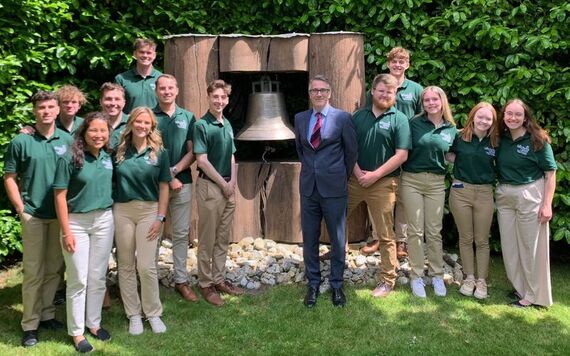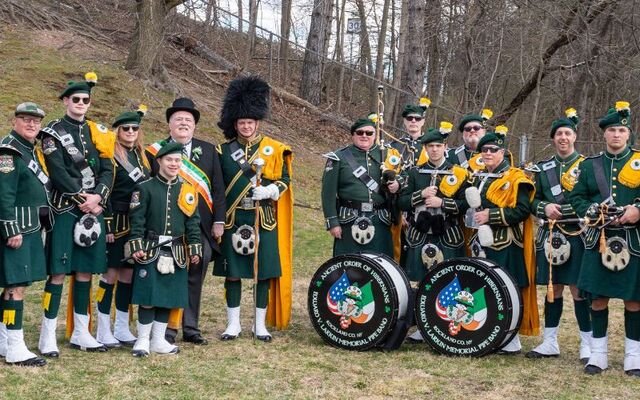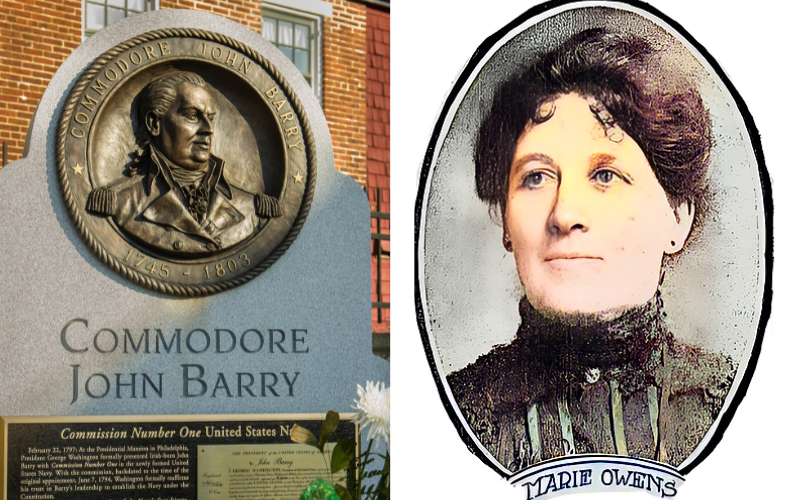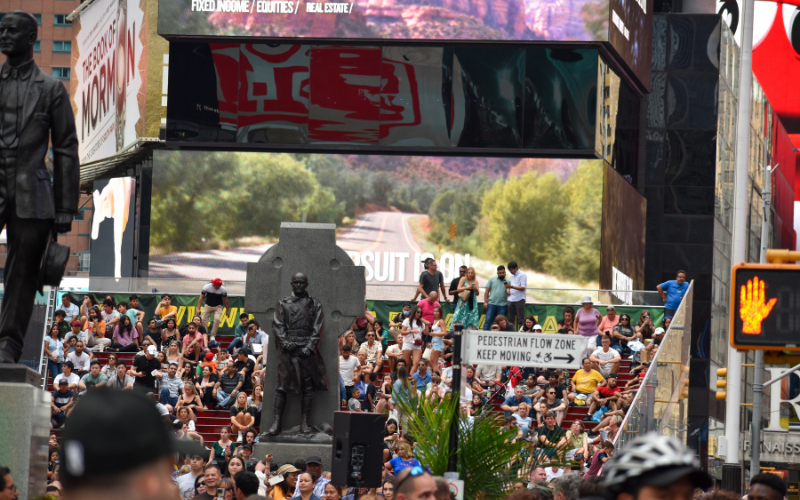Join the AOH in making Irish American Heritage Month more than just a proclamation—make it a call to action.
Since 1991, presidents of both parties have proclaimed Irish American Heritage Month, recognizing the profound impact of Irish immigrants and calling on all Americans to celebrate their achievements.
Yet, how often does this recognition translate into national consciousness?
Despite greater success, Irish-born Commodore John Barry was overshadowed by John Paul Jones, whose Scottish heritage was more palatable to early historians. How many realize the Irish, driven by starvation and British neglect, built America's canals, railroads, and cities?
Or that tens of thousands fought in the Civil War, only to be met with 'No Irish Need Apply' signs and the poisoned pen of Thomas Nast, who claimed they could never be 'loyal Americans,' an accusation JFK still faced a century later?"
WATCH: AOH has created a video showcasing the contributions of Irish Americans from the past to the present, highlighting the struggles, sacrifices, and achievements that helped shape the United States
Join the Ancient Order of Hibernians in America in making Irish American Heritage Month more than just a proclamation—make it a call to action. Find out more here: https://bit.ly/4bir07b
Posted by IrishCentral.com on Friday, February 28, 2025
The story of the Irish in America is not just an Irish story—it is an American story. It is the quintessential immigrant narrative, setting the template for later waves of immigrants.
It speaks to themes still relevant today: the struggle against oppression and the quest for freedom, the power of perseverance, and the ongoing fight for fair recognition.
The Irish arrived in America starving, desperate, and unwelcome. They fought valiantly in its wars, yet for years were told they were not truly American. Their faith and culture were used as reasons for scorn. Still, they endured. Cut off from Ireland by an ocean and excluded from mainstream America by prejudice, Irish immigrants forged a new identity, one that made their children and grandchildren successful in every field of endeavor.
They took the hyphen designed to keep "Irish" at a safe distance from "American" and made it into a badge of pride. Like the tracks they laid that spanned a continent, the contributions of Irish Americans extend beyond their communities to people of all heritages,
However, that pride and identity are fading, making recognition of Irish American Heritage Month more crucial than ever.
The Ancient Order of Hibernians welcomes new members - find out more about how you can join your local AOH here
Sadly, what was once exclusion due to prejudice now faces a new kind of erasure—one ironically cloaked in the language of inclusion. In today's conversations about history and identity, some narratives receive greater recognition while others are overlooked.
Irish Americans, who once faced systemic oppression and violence, are now categorized with the very nativists who once sought to exclude them. Their history of struggle, sacrifice, and perseverance should be understood, not dismissed or rewritten to fit a modern ideological framework.
Unfortunately, while Irish American achievements are erased from history, the negative stereotypes and tropes of the 19th century persist, dismissed as 'harmless humor.' Yet, if these same stereotypes were applied to other heritages, they would be met with indignation and rightfully condemned.
As the history of Irish Americans is erased and corrosive stereotypes persist, the traditional ways of preserving heritage are also fading. For generations, Irish Americans passed down their history and values through family gatherings, church communities, and organizations like the Ancient Order of Hibernians.
The lessons not found in textbooks were told at kitchen tables, in the laughter of family gatherings, and in the quiet reminiscences of grandparents who had seen hardship and exemplified faith and determination. The music, history, and traditions of the Irish have always been written in hearts and minds rather than on scrolls or pages, beyond the reach of conquerors and oppressors.
But today, these traditional means of preserving heritage are under threat. Due to inequitable immigration laws, America's personal connections to Ireland are not being revitalized. The conversations around the kitchen table have fallen prey to the hectic pace of modern life. Grandparents may be several states away. Beloved Irish American institutions that served as incubators of heritage for generations are closing due to shifting demographics and economic challenges.
The Irish statesman Edmund Burke warned, 'People will not look forward to posterity who never look backward to their ancestors.' If we fail to act, Irish American identity will fade—not by coercion, but by apathy. Irish American Heritage Month must be more than a presidential proclamation; it should be a national moment of reflection and education.
Throughout March, the AOH will also feature daily biographies of prominent Irish American men and women, shedding light on their invaluable contributions to history, politics, labor movements, science, and culture. These biographies may be found at www.aoh.com and on Facebook and Instagram.
Heritage is not just a gift we receive but a gift we give. Heritage is not just something we inherit; it is something we must actively protect, celebrate, and pass on. Heritage is more than the results of a DNA test.
This Irish American Heritage Month join the AOH in honoring those who came before us—not just in words, but in deeds. Teach the history schools neglect. Above all, ensure the next generation knows who they are not just in name but in soul.
The AOH is committed to teaching the importance of Irish heritage to the next generation
Interested in being part of America’s oldest Irish Catholic organization? Click here to learn more about how you can join your local Ancient Order of Hibernians.





